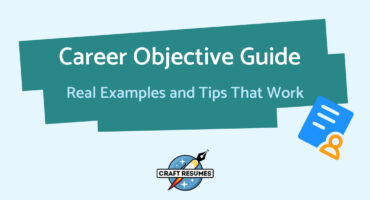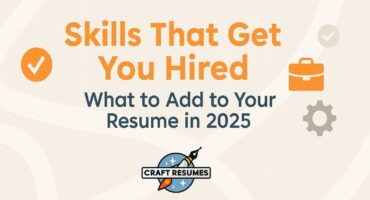Words to Describe Yourself: Best Adjectives for Interviews and Resumes in 2026
Jul 01 2025
Right words often stand as one of the toughest hurdles for job hunters. In a cutthroat market, those words shape a recruiter’s first view. This guide covers strong adjectives for resumes, interviews, cover letters and applications.
Strong Self-Descriptions Open Doors—Here’s Why
The words you choose to describe yourself shape how employers see you right away. In interviews, first impressions form fast.
Your words matter from the start. The right ones show your value, your personality, and how you might fit in. They help build the story of who you are as a professional.
The right words can help you stand out when your experience looks like everyone else’s. Strong, specific terms like “innovative” or “results-driven” add weight — if you back them up.
But vague buzzwords? They fall flat. Hiring managers scroll past phrases like “hard-working team player” because everyone uses them. Worse, some words can hurt more than help. Arrogant language turns off 59% of employers right away. So, choose words that show confidence, not ego. The way you describe yourself shapes how others see you — and that can decide what happens next.
Common Situations Where You Need to Describe Yourself
You don’t just need strong words for interviews. They matter across the whole job search. Resumes, cover letters, LinkedIn bios — all of them need sharp, honest ways to describe who you are. Even after you land the job, those same words shape how others see you at work:
- Job interviews: Interviewers often ask, “How would you describe yourself?” or “What three words sum you up?”. Such questions reveal how well you know your strengths. Sometimes they sound different — “What would your friends say about you?” or “Tell me about yourself”. No matter the phrasing, they all check how clearly you explain who you are and what you offer.
- Resumes (Resume Summary or Profile): Your resume gives the first impression, so word choice counts. The top section should tell who you are in a few direct words. For example: “Analytical, results-driven financial analyst with 5 years in fintech.” That kind of sharp line grabs attention. Use clear, strong words that match the job — the same ones you’d say out loud in an interview.
- Cover letters: A cover letter shows your personality and work style. Use strong words that match the job and give proof. For example: “I’m adaptable and detail-oriented — I worked across two teams and followed strict policies.” That paints a clear picture. Avoid clichés. Choose words that fit the role, the tone, and the company. Every word should say something real.
- Networking profiles (LinkedIn summary): Your LinkedIn “About” section also needs the right words. A short line like “Passionate educator with a track record of student success” can say a lot fast. Clear language shows who you are and helps recruiters find you.
- College applications and personal statements: This works outside job searches too. In college essays, students often use words like motivated, curious, or resilient. The right traits can show growth and character. Your words shape your image, just like in an interview. Stay honest, match the tone of the program, and skip the fluff.
How to Find and Choose the Right Words to Describe Yourself
Start with what the job needs. Then match it to what you do best. Focus on traits that feel real and fit the role. Below are smart ways to spot the right words:
- Start with the job description: The job description shows you exactly what the employer wants. If they ask for a “self-starter with leadership and analytical skills,” and that fits you — use similar words. Pull those traits into your resume, cover letter, or even a common interview. These keywords help both the recruiter and the Applicant Tracking System (ATS). Without them, your resume might not even reach a human. But don’t copy lines word-for-word. Instead, mix in honest matches or close synonyms that still sound like you.
- Reflect on your strengths and ask others: Think back on when you performed well. What traits helped you stand out? List a few words that truly describe you. Still stuck? Ask people you trust. Say, “What are three words you’d use for me?”. Patterns in their answers often reveal qualities you didn’t notice. Maybe they say “calm under pressure” or “meticulous.” If those traits match the role, use them.
- Focus on relevant professional traits: Not every good trait fits every job. Match your words to the role. “Competitive” works for sales, but not for nursing. A nurse might need to show “compassionate” or “detail-oriented.” In tech, try “analytical” or “innovative.” For customer service, go with “empathetic” or “patient.” The right word depends on what the job values. Every field speaks differently. When the fit feels unclear, nurse resume writers step in and cut the guesswork. They know which words work, and which ones quietly push your resume to the bottom.
- Avoid clichés and hollow buzzwords: Words like “hard-working” or “team player” show up everywhere and say very little. Use sharper terms that show how you work. Try “productive,” “collaborative,” or “deadline-driven” instead. Go with words that paint a picture — not ones that blend in. “Meticulous” hits harder than “detail-oriented.” “Resourceful” leaves a mark where “problem-solver” feels flat. Pick words that sound like you and give people a clear image.
- Back up each word with evidence: Don’t just say “strategic” — show what that looked like. For example: “I developed a plan that boosted sales by 15% in one quarter.” That hits harder than a plain label. Same rule applies across the board. In interviews, stories matter. On paper, numbers help. “Detail-oriented project manager who delivered every project on time, no budget overruns.” If a word doesn’t connect to a real result, drop it. The best descriptions come with receipts — that’s what sticks.
- Use tools and resources if needed: If you’re stuck, use tools that scan job listings and compare them to your resume — or try an ATS resume service that adjusts the wording for better visibility. Platforms like Jobscan can flag keywords you might miss — like “cross-functional,” “CRM software,” or “client-focused.” These hints can guide your word choice. But don’t copy blindly. Only use terms that match your experience. Authentic words hold up in interviews — empty ones fall apart fast.
Match the job, show your real strengths, skip the buzzwords, and back up your words with proof. That mix helps you sound sharp and real. It also builds the kind of confidence that comes through in any setting.
Positive Words to Describe Yourself (By Category with Examples)
These words show your work ethic and dependability. They help paint you as someone who gets things done and can be trusted.
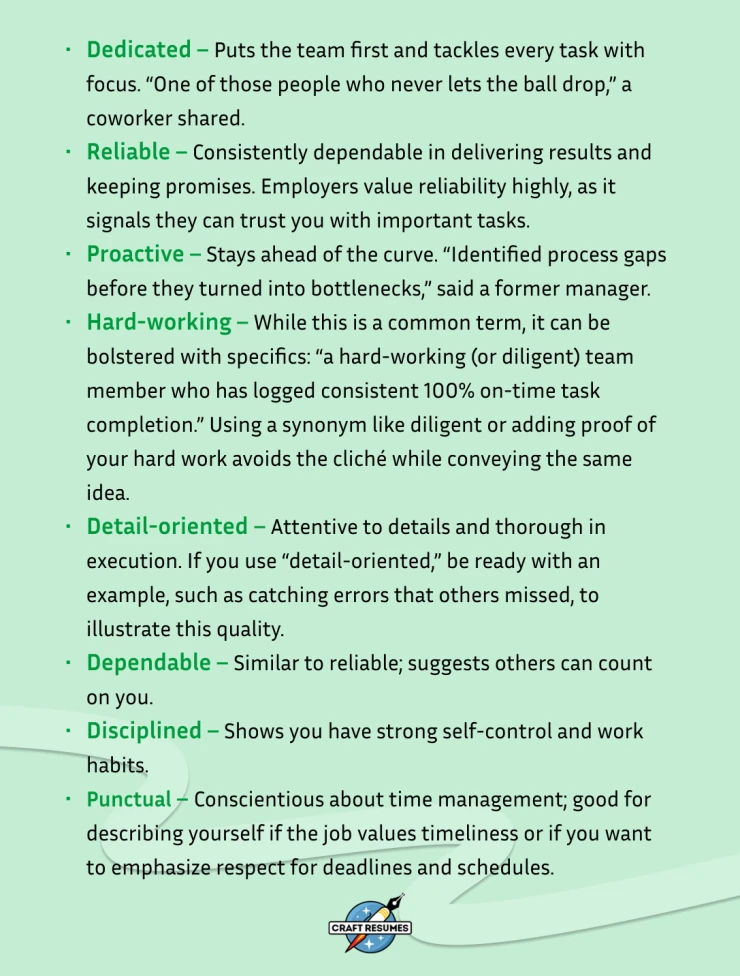
Example (Work Ethic in an Interview):
Interviewer asks: “How would you describe yourself in terms of your work style?”
Candidate answers: “I would describe myself as reliable and proactive. For example, in my last job I was entrusted to manage our largest client’s account independently because my manager knew I would be dependable with follow-through. I also took the initiative to implement a new scheduling system for the team – being proactive in that way saved us all time and was later adopted company-wide.”
This answer uses strong professional words to describe work ethic (reliable, proactive) and backs them up with specific evidence.
2. Problem-Solving and Analytical Skills
These words emphasize your intellectual approach to challenges and your ability to deliver results or improvements, which are crucial in many roles:
- Analytical: Thinks through problems with logic and clarity. One example: “I reviewed six months of client data, spotted a pattern, and suggested a change that cut costs by 18%.”
- Resourceful: Handles roadblocks without missing a beat. When our developer called out, I picked up the slack, learned the tools fast, and finished the project on time.
- Innovative: Brings fresh ideas into real projects. At my last job, I pitched a new content format — it doubled engagement within a month. Forward-thinking fits well here too, especially in tech.
- Strategic: Thinks ahead and works with purpose. In one case, I mapped out team priorities to match company goals — our group hit every mark that quarter.
- Detail-oriented: Doesn’t miss a thing. Checked every number, every line, every report — not one error slipped through. That habit saved the team time and rework.
- Efficient: Works smart and gets more done with less. I rebuilt our scheduling system — fewer mistakes, 30% less time, same accuracy.
- Adaptable: Doesn’t panic when things change. When we lost our vendor mid-launch, I found a backup, shifted timelines, and still delivered on deadline.
- Results-driven: Keeps goals in focus and hits them. At my last job, I beat sales targets four months straight — not by luck, but by staying locked in on what mattered.
Words like “analytical” or “resourceful” hit harder when backed by real results. They show you don’t just handle complex tasks — you improve what’s around you.
3. Interpersonal and Teamwork Qualities
Most jobs involve other people, so employers pay close attention to how you talk about your teamwork and communication style. Here are a few strong words in that space:
- Collaborative – Works well with others. “Led cross-functional teams through multiple product launches.”
- Communicative – Shares ideas clearly. Can break down complex info for non-experts. Comes off as clear and approachable.
- Empathetic – Connects with people. Understands where others come from — key in leadership, HR, and client-facing roles.
- Supportive – Lifts the team. “Mentored new hires and helped junior staff adjust fast.”
- Assertive – Speaks up with confidence and respect. Useful when leading or pitching ideas.
- Personable / Friendly – Easy to work with. Builds trust quickly, especially in client-facing roles.
- Team player – Doesn’t just say it — proves it. “Helped the group land a major client by jumping in where needed.”
- Inclusive – Respects all voices. “Built a team culture that welcomed diverse input and new ideas.”
Mix self-description with how you support others. Say, “I’m a collaborative team member — ran check-ins, made space for every voice, and helped the group build a stronger final product.” That shows the trait, not just says it.
4. Leadership and Initiative
If you are applying for roles that involve leading others or taking initiative, focus on words that convey those competencies:
- Visionary – Sees the bigger picture. “Introduced a 5-year growth plan that reshaped the department.”
- Decisive – Acts fast with confidence. “Handled a crisis by choosing a fix that cut downtime right away.”
- Inspirational – Lifts the team. “Boosted morale and led projects with steady energy through tough spots.”
- Driven – Stays focused and pushes results. “Hit sales goals month after month and kept the team motivated.”
- Accountable – Owns the outcome, good or bad. Teams trust leaders who take full responsibility.
- Empowering – Builds trust and gives space. “Trusted my team with key tasks — their confidence grew, and so did the results.”
- Charismatic – Brings energy and influence. Great fit for roles where people follow your lead.
- Strategic – Guides the team with smart planning. Keeps long-term goals in focus.
- Ethical – Leads with honesty. Sets the tone for how the whole team shows up.
Mention what you led and what came out of it. For example: “Dynamic project leader — ran a cross-department push that cut client onboarding time by 20%.” That shows leadership with real impact.
5. Creativity and Adaptability
For roles that value creativity, innovation, or the ability to adapt to change, consider these words:
- Creative – Brings fresh ideas to the table. Not just artsy — solves problems in smart, new ways. Back it up with a real example.
- Innovative – Pushes for better methods. “Innovative engineer — filed two patents for process improvements.”
- Adaptable – Stays steady through change. Handles shifts without falling behind. That skill matters more than ever in fast-moving industries.
- Versatile – Wears different hats and handles both sides of the work. “Versatile pro — manages tech tasks and talks to clients with ease.”
- Resilient – Keeps going when things get hard. Doesn’t fold under pressure. Especially useful when you’ve faced tough spots and pulled through.
- Curious – Always asks questions and digs deeper. Learns new tools fast and grows on the job without needing a push.
- Strategic – Thinks ahead. Connects short-term work to long-term goals. Mixes creativity with smart planning.

This style proves your traits with real results — not just words.
6. Personality and Attitude
Add one or two words that show your attitude or personality, especially if they match the company vibe. Employers often care about mindset as much as skill. Words in this category include:
- Upbeat – Brings positive energy. “Known for staying upbeat, even under tight deadlines.”
- Humble – Gives credit, stays open to input. Better to show it through actions than claim it outright.
- Confident + Humble – Not opposites. The best mix: you know your value, but stay grounded.
- Easygoing – Works well with different people. Stays calm under stress, but also stays focused on high standards.
- Empathetic – People-first mindset. Shows up in how you lead, support, and connect.
- Honest / Trustworthy – Strong integrity. Especially important in roles with money, data, or team trust.
- Patient – Handles repeat questions or tough moments without losing focus. Key for teaching, service, or care work.
- Energetic – Brings drive and excitement. “Often the one who rallies the team during big pushes.”
Match your personality words to the company vibe. At a buttoned-up firm, “fun and witty” might fall flat. But at a startup? That could work great. If the place feels creative and bold, lean into traits like “enthusiastic” or “original.” Different workplaces value different energy — read the room.
How to Describe Yourself in an Interview (Tips and Examples)
Interviewers want straight answers, not buzzwords. Show confidence without bragging. Stay real and clear. Pick a few strong traits ahead of time. Say them plainly and back them up. Here’s how to do it right — with a real example that works.
1. Be ready for the “Describe Yourself” question: Most interviews start with “Tell me about yourself” or “Give me three words that describe you.” Around 93% of hiring managers open that way. So stay ready. Don’t just list traits like “motivated” or “outgoing” — back each one up.
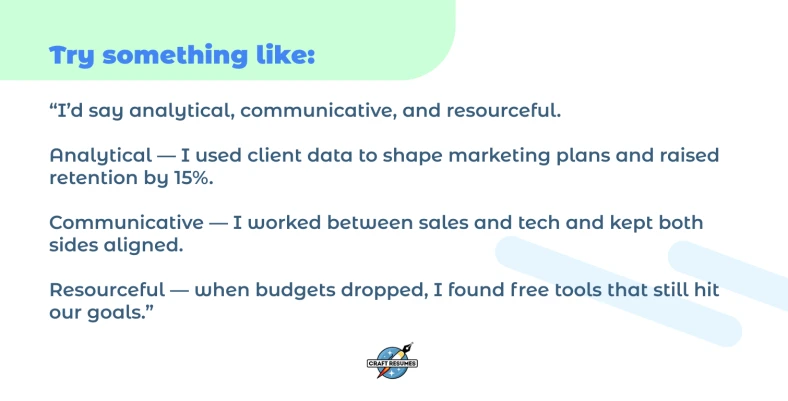
That kind of answer shows real value — not just talk.
2. Stay relevant to the role: Relevance matters. Every word you say should connect to the job. Say you’re up for a data science role — “funny and adventurous” won’t hurt, but they won’t help much either. Stick with traits that match the role. You can still show personality, but lead with what proves you fit. One career coach nailed it: if your words don’t match the job, no one cares.
3. Show confidence through body language and tone: Words don’t land without the right delivery. Speak clearly, keep eye contact, and show confidence in your tone. If you say “I’m a leader” but stare at the floor, no one buys it. Practice out loud so your voice, face, and posture match your message. Body language matters — it shapes how interviewers see you. Confidence helps your words stick, but stay grounded. Say “I hit top results in my division,” not “I’m the best you’ll ever meet.”
4. Don’t just enumerate qualities – tell a story: People remember stories, not lists. Even when asked for three words, add quick proof. Better yet, tell your story. Say, “I started in support — that taught me patience and empathy. Later, I shifted to data work and became the go-to person for spotting gaps. I earned two promotions in three years, so I’d also say I’m ambitious.”
5. Practice common formulations: Interviewers may ask, “How would others describe you?” or “What one word sums you up?” Different wording, same goal — they want to hear your key traits. Don’t get thrown off. A smart move: use a quote. Say, “My team called me the ‘rock’ during our last deadline — I kept everything on track. They also say I’m approachable, since I always help without making people feel rushed.”
Example of a Strong Interview Response:
Imagine an interviewer asks: “If I were to ask you to describe yourself in three words, which would you choose?” A strong answer might be:
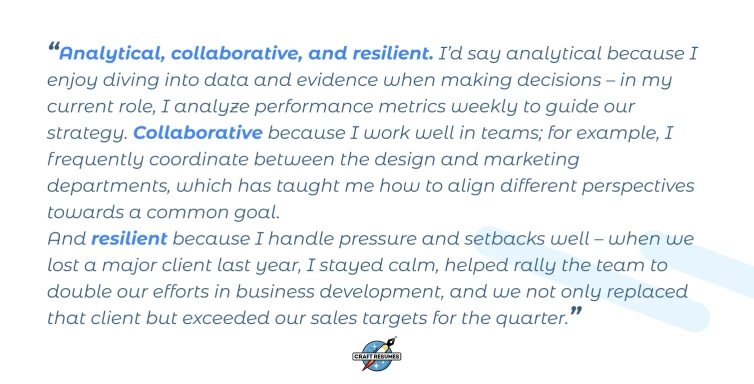
The answer hits all three traits and backs each one with proof. It stays focused, professional, and clear. Done right, this kind of response shapes how the interviewer sees you. Keep it real, stay positive, and use the moment to show why you belong in the role.
How to Describe Yourself on a Resume
On a resume, you have less space. Your traits need to land fast. Use bold, relevant words and back them with proof. Best spots? The headline, summary, and bullet points under experience. Every word should work hard.
1. Craft a compelling resume headline. A resume headline sits under your name and gives a quick snapshot of who you are. Use 2–3 strong, job-matching words. Example: “Creative Project Manager with Proven Team Leadership.”
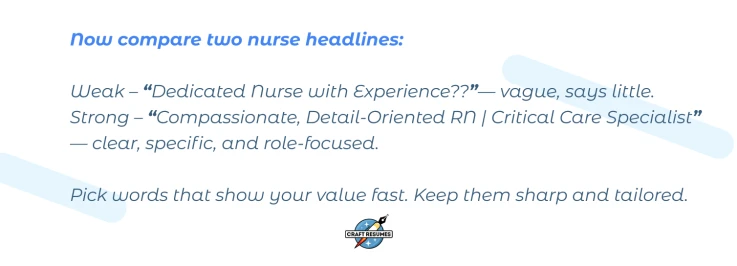
2. Write a concise but powerful summary/profile:
A resume summary gives a quick pitch in 3–5 lines. Use it to show key traits and back them up with results. Example:
“Analytical financial analyst with 4 years in risk assessment. Cut forecast errors by 30% after launching new models. Known for teamwork and leading cross-department projects.”
Each word — analytical, proactive, collaborative — comes with proof. That’s what makes it stick.
Now compare two nursing summaries:
Strong – “Skilled, compassionate RN with 5+ years in critical care. Calm under pressure, sharp with details. Improved patient outcomes through evidence-based care.”
Weak – “Hardworking, caring nurse with experience. Passionate, organized, responsible.”
The first one shows value. The second just lists buzzwords. Use real traits, show the impact, and skip the fluff.
If your resume just lists duties, not results, it may fall flat. A teacher resume writing service can help shift the focus to real impact in the classroom.
3. Use strong action verbs and mix in descriptors in experience bullets:
Adjectives help, but verbs and results do the heavy lifting. Each resume bullet should start with a strong action word.
Example:
“Implemented a new CRM system — cut lead response time by 15%.”
You can still work in traits. Try:
“Led an innovative project — saved 20% on supply chain costs.”
Or:
“Teamed up across departments — launched a new product and showed adaptability under pressure.”
Words like “strategic” land better when backed by results:
“Built a 3-year marketing plan — boosted market share by 10%.”
Prove every trait. Let the numbers speak.
4. Tailor the language to each application:
Adjust your word choice the same way you adjust your achievements. Each field has its own language. A resume for engineers should sound different from one for marketing or education — recruiters notice. One role may call for “innovative and agile,” another for “dependable and experienced.” Match their language, but stay honest. Use only words you can explain out loud. If your resume says “meticulous,” be ready when the interviewer asks, “Can you give an example?” Every word should hold up in the room.
5. Highlight unique or domain-specific adjectives if relevant:
Field-specific adjectives can hit hard. A software engineer might say “scalable” or “full-stack.” A teacher could go with “student-centered.” A salesperson might use “quota-surpassing” or “customer-focused.” These terms show you speak the language of your role — and that makes your resume feel dialed in.
Resume Self-Description Example:
Profile: Detail-oriented, results-driven financial analyst with 6 years in fintech. Analytical mindset — raised forecasting accuracy by 25%. Strong communicator who explains complex data in plain terms.
This summary shows the traits and backs them with proof — clear, sharp, and people-focused.
Smart Words for Cover Letters
A cover letter gives more room to describe yourself than a resume. Here, you can show personality and expand on what makes you stand out. Below are quick tips for working self-descriptive words into your message.
1. Tell a story that reflects your qualities: Skip the adjective list. Use a quick story that shows your traits in action. Example:
“In my last role, our timeline got cut in half. I took on extra tasks, kept the team focused, and we still hit the deadline. That experience showed my adaptability and positive mindset — two traits I bring to every challenge.”
This hits harder than just saying “I’m adaptable.” Let the story do the work.
2. Use a tone that matches the company culture: Cover letter tone depends on the field. A startup might value bold and creative. A traditional firm may prefer reliable and polished. Match the vibe, but stay true to yourself. Keep it professional — skip slang — but show a little personality. Phrases like “I’m known for…” or “Colleagues say I…” can sound confident without bragging.
3. Don’t overload on adjectives – choose a few that count: Don’t dump a list of adjectives into your cover letter. Focus on three key traits that match the job. Show them through real moments. For example:
“I take pride in my meticulous editing — I often catch what others miss. I also push for new ideas, like the microfiction series I pitched and led. And I value collaboration — I’ve chaired meetings to improve team workflow.”
Each word — meticulous, creative, collaborative — fits naturally into the story. That’s how you make traits stick.
4. Align with the company’s values in your self-description: If the job ad or mission highlights values like innovation or teamwork, echo those—if they truly fit you. Say, “I see myself as an entrepreneurial problem-solver who thrives in team settings.” That tells them you get their culture.
Cover Letter Snippet:
I stay meticulous and always look for better ways to work. At my current job, I automated a reporting task and saved my team 5 hours a week. I lead complex projects with focus and energy — teammates often call me the planner who keeps things on track but also keeps the vibe strong. I care about high standards, which is why YourCompany’s focus on innovation and excellence stands out.
This version blends traits with results and ties them to the company’s values — clear, natural, and effective.
Words You Should Never Use to Describe Yourself
The words you avoid matter just as much as the ones you choose. Some sound harmless but create the wrong impression. Others feel empty or overused. A few even raise red flags. In a professional setting, these can weaken your message fast. So watch your phrasing. Below, you’ll find examples that don’t land well — and reasons to leave them out:
| Word to Avoid | Why and Alternatives |
| “Hardworking” | It’s overused and doesn’t say much by itself. Anyone can claim to be hardworking. Instead of stating this, demonstrate it with an example of your effort. Or use more specific terms like “productive” (if you achieve a lot in a short time) or “dedicated” (if you stay committed to tasks), coupled with evidence. |
| “Go-getter” | This term is cliché and can sound a bit informal or forced. It was a popular buzzword that has since lost impact. If you want to convey proactivity or initiative, use words like “proactive” or “driven”, and again, back them up with a scenario (e.g., proactive in taking on responsibilities outside your job description). |
| “Ninja” / “Guru” / “Rockstar” | Terms like “Excel guru” or “coding ninja” sound unprofessional or cocky. Say “expert in Excel” or “full-stack developer” instead. Keep it clear, not cute. |
| “Perfectionist” | “Perfectionist” sounds like a strength, but it often backfires. Some hear it and think: slow, nitpicky, bad with deadlines. If you mean detail-oriented or focused on quality, say that instead. Try “committed to high standards” — it sounds better and shows results. |
| “Self-taught” | Self-taught skills show initiative, but don’t lead with the phrase. “Self-taught in programming” sounds like a gap. Instead, say “Proficient in Python, including libraries X, Y, Z — built projects and studied through online courses.” Focus on the skill. Mention how you learned it only if it adds value. |
| “Nice” | “Nice” doesn’t say much. Everyone claims that. Instead, go with words that fit the workplace — like “approachable,” “collegial,” or “strong at building client relationships.” |
| Any obviously irrelevant traits | Skip traits like “fun-loving,” “fashionable,” or “movie buff.” They don’t help unless they connect to the job. Same with “introverted” or “extroverted” — only mention them if they shape how you work. Stick with traits that matter to the role. The rest just distracts. |
Some words sound bold but fall flat. “Genius” or “visionary” may grab attention, but they often come off as arrogant. If a word doesn’t explain why you fit the role or carries the wrong tone, skip it. Confidence works best with proof. Say, “Top sales rep for two years” — not “the best salesperson you’ll ever meet.” Let results speak. That shows strength without the brag.
Some words sound right but leave the wrong impression. “Outspoken” may suggest trouble. Try “assertive communicator” instead. “Independent” works, but “prefers to work alone” might turn people off. Think about how your words might come across. Every detail shapes how they picture you.
Self-Descriptions That Get Noticed
Clear self-description helps in resumes and interviews. Use honest, job-matching words. Support them with real examples. One strong trait with proof beats a long list. Keep it sharp and true.
- Keep it Positive and Honest: Use words that show you in a strong light. Skip false modesty and pick honest, positive traits that reflect who you are. Don’t fake skills or exaggerate—interviewers can spot that. Stay real, focus on your best qualities, and let them speak clearly.
- Contextualize Every Adjective: Show what the word means. Add an example with each key adjective. That turns talk into proof. A clear result sticks better than a vague trait. People forget the label—but remember the person who boosted efficiency by 30% or led a product launch. Results make your strengths real.
- Match the Job and Company: Match your words to what the employer values. Scan the job ad or site for repeated themes. If they stress “customer focus,” show how you put customers first. If they highlight “innovation,” point to ideas you introduced. Use your own voice, but speak their language. That helps them see you as a natural fit.
- Mind Your Delivery: Keep your tone formal and professional. In a cover letter, speak from the “I.” On a resume, use short lines that imply the subject. Skip “you” and cut out -ing verbs. Switch up your sentence length and structure to avoid a flat or boring rhythm. Vary your phrasing so each line feels fresh.
- Edit and proofread: Double-check your resume and cover letter for grammar slips or spelling errors. One mistake under “meticulous” ruins the message fast. First impressions start on paper, so everything must look clean. A second opinion helps spot weak spots and unclear phrasing.
- Be Prepared to Discuss Any Word You Use: If a word appears on your resume, expect questions about it in the interview. Say you’re “strategic” — the interviewer might ask for proof. They often pick words you used and ask for examples. Always back up your traits with real stories. The resume and interview should match, so your self-description stays consistent from start to finish.
- Show Growth and Learning: Entry-level job seekers and career changers can stand out by showing growth. Say you’re “adaptable” or “open-minded,” and then prove it. For example, “During my internships, I asked for feedback and used it to sharpen my skills.” That shows a willingness to improve. Employers look for people who learn fast and stay coachable — especially when core skills are already in place.
Use clear words that match your strengths and the job. Add real examples. Let results prove your value.
Today’s job market is tough. Employers want more than skills — they want the right fit. Your words help paint that picture.
Don’t just say you’re reliable. Show it. Describe what you’ve done. That sticks.
When someone asks, “How would you describe yourself?” speak with truth, not fluff. Be sharp, real, and ready.
References:
- Indeed Career Guide – 125 Positive Words and Adjectives To Describe Yourself
- HR Daily Advisor – First Impressions: Nearly Half of Employers Know if a Candidate Is a Good Fit within the First 5 Minutes
- Jobscan Blog – 200+ Words to Describe Yourself (With Examples)
- Zety Blog – 100+ Good Words to Describe Yourself in 2025
- Apollo Technical – 21 Essential Job Interview Statistics

